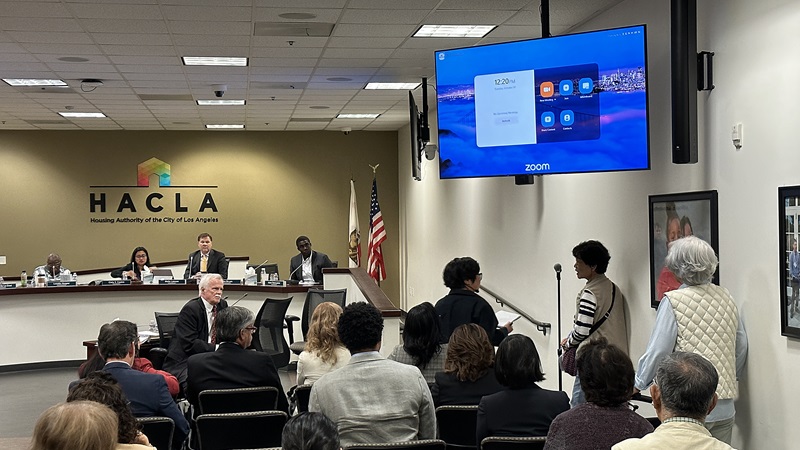A petition drive is starting in LA’s Koreatown to call for the availability of Korean-language assistance. This initiative aims to simplify the process for low-income and elderly Korean residents to obtain information and apply for affordable housing.
The Ktown Action Project of the Koreatown Immigrant Workers Alliance (KIWA) announced on March 6 that it would call on the Housing Authority of the City of Los Angeles to provide information and applications in Korean for low-income apartments, including in LA Koreatown.
The organization said it would hold a press conference at 11 a.m. on March 7 to launch a full-scale petition drive.
According to the Ktown Action Project, information about low-income apartment units offered under the Transit Oriented Communities (TOC) program, implemented by Los Angeles City Planning in 2017, is not being made publicly available.

According to the Ktown Action Project, a total of 809 TOC applications were approved in Koreatown from 2017 to 2022, with 282 units set aside for low-income families.
“The Wilshire neighborhood, which includes Koreatown, has the highest number of TOC approvals in the city, but there is no way to receive relevant information,” said President Yoon Dae-jung of the Ktown Action Project. “We will be asking the city of Los Angeles and the LA Housing Authority to provide letters and materials about low-income housing in Korean.”
The organization also plans to file a complaint with the Federal Housing Administration for failing to provide mandatory Korean-language services.
“Non-English speaking Korean immigrants have a right to Korean-language services,” Yoon said. “We need to make our voices heard so that they can get the services they deserve,” Yoon added, encouraging people to sign the petition.
Contact: (323)545-8778, djyoon@kaction.org
BY NICOLE CHANG, JUNHAN PARK [chang.nicole@koreadaily.com]




